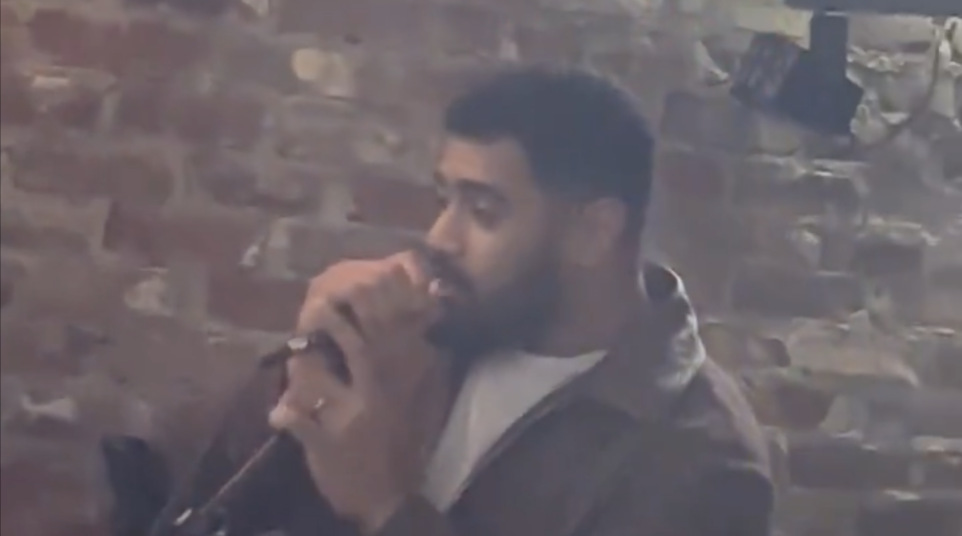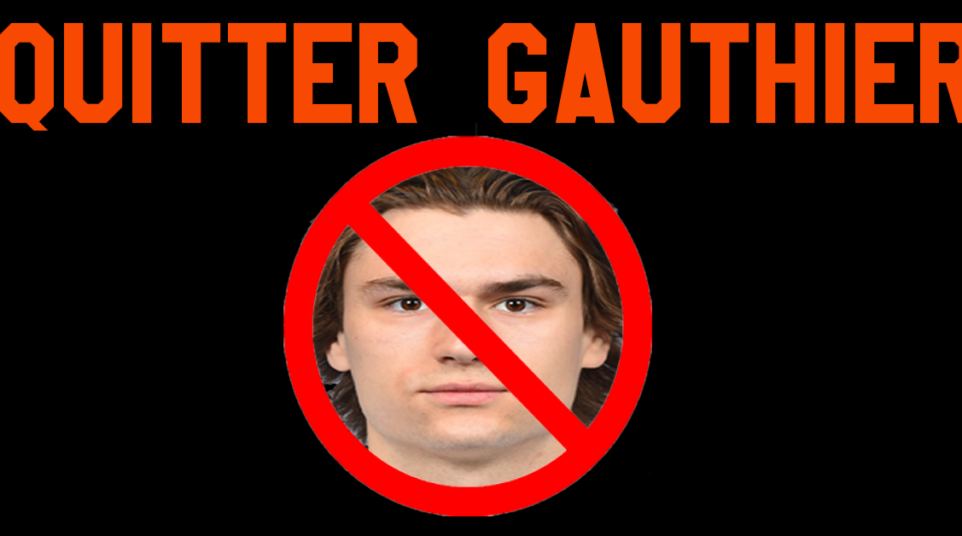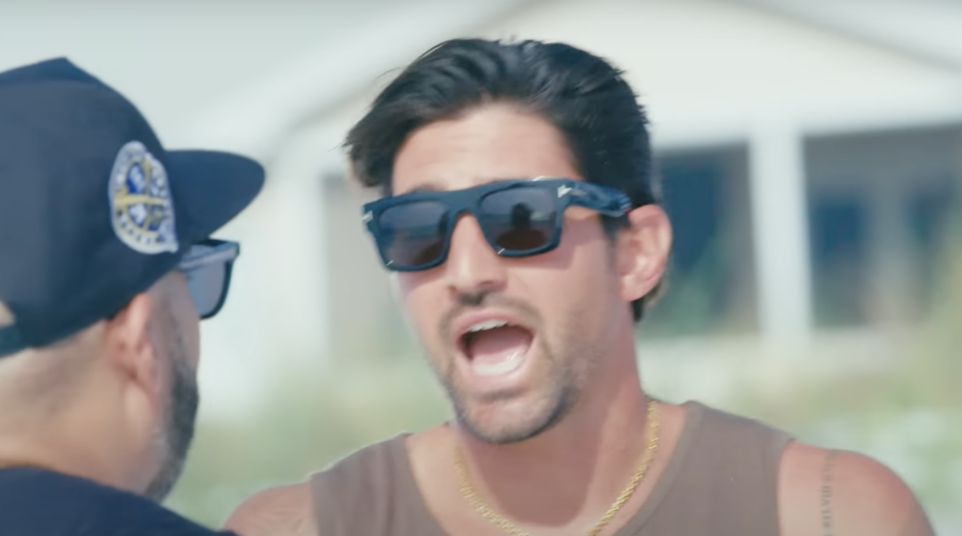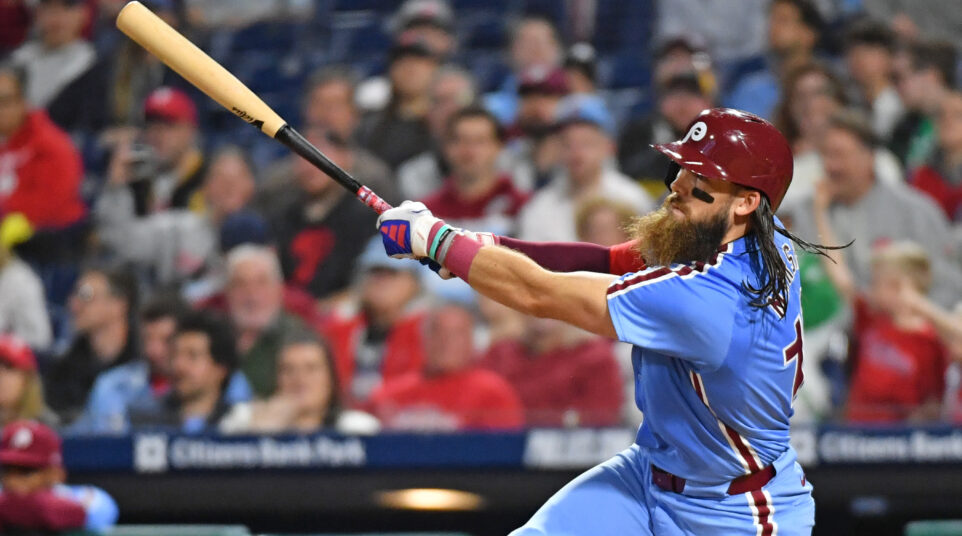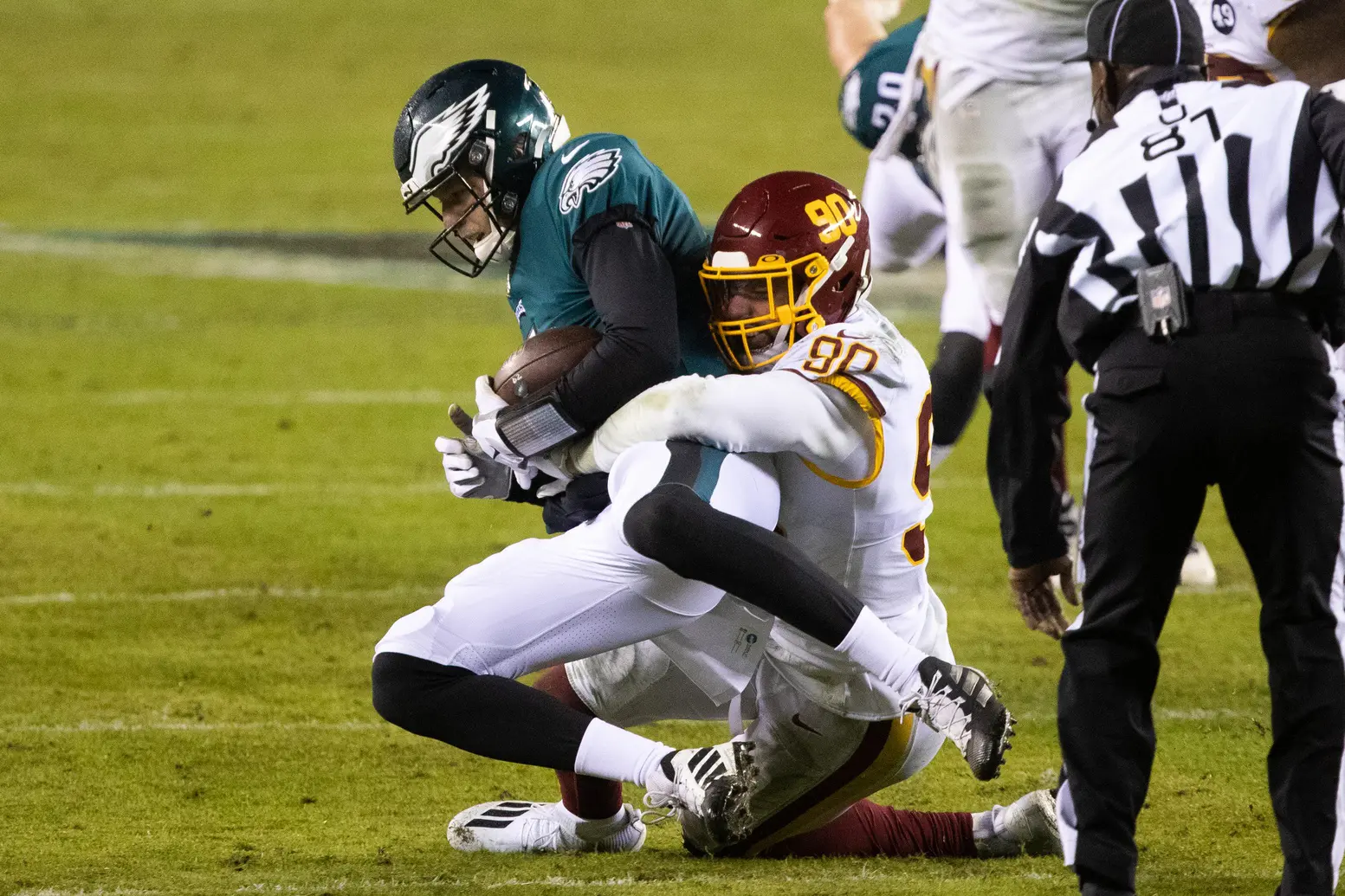
Upset the Eagles Tanked? Too Bad
This past weekend, the world officially turned the page on 2020. We were able to take some time to bid farewell to the terrible challenges of the previous year and hope for better days in 2021.
Sunday also offered Philadelphia Eagles fans an opportunity to move past what was a miserable campaign. A season that started with so much promise – a veteran roster anchored by franchise quarterback Carson Wentz and a stable coaching staff, which should have given them a considerable advantage over their divisional rivals – ended in utter disappointment.
The veteran roster was once again decimated by injury. Same as it ever was, to borrow a phrase from the Talking Heads. While Wentz was able to avoid the medical tent this time around, his clear regression this season has thrown into doubt his seemingly inevitable long term future in Philadelphia. The strategic advantage Pederson and his staff should have enjoyed never manifested itself, as the Birds found themselves in the basement of the NFL’s worst division by season’s end.
It was fitting that the Washington Football Team came into town to drive the final nail into the proverbial coffin. As the clock wound down on the game and Eagles fans were treated to watching Nate Sudfeld try to drive the offense like a teenager who just earned his learner’s permit, it was difficult not to reflect back to Week 1 and the first meeting between these teams. The Eagles raced out to a 17-0 lead on the strength of 3 impressive scoring drives and stifling defense. Carson Wentz looked as advertised, slicing and dicing a formidable Washington defense and distributing the ball to all of the weapons at his disposal: the dynamic tight end duo of Zach Ertz and Dallas Goedert; last season’s darlings Greg Ward and Boston Scott; and the speedy tandem of DeSean Jackson and Jalen Reagor.
The Eagles were who we thought they would be for most of one half in Week 1, and then they reverted to what they would become for the rest of the season: an offense perpetually stuck in neutral, piloted by a quarterback who was alternately indecisive and prone to turnovers; a defense overly reliant on its four-man rush and lacking playmakers at linebacker and the secondary; and a head coach who finally seemed out of answers as his team spiraled to the bottom.
Week 17 laid bare the long-running deficiencies of this organization, which they had so carefully managed to sweep under the rug since their increasingly distant Super Bowl triumph three seasons ago. The “quarterback factory” general manager Howie Roseman once boastfully claimed his organization was building showed that a product recall was in order: the franchise quarterback a healthy scratch and reportedly looking for a fresh start elsewhere; an unproven rookie backup whose early successes overshadowed predictable growing pains; and a third-stringer whose hapless relief effort despite four years in the organization spoke volumes about the team’s general inability to develop its signal callers since the heady days of 2017. Despite a valiant effort from an injury-plagued defense to keep the Eagles in the game, the offense struggled to sustain any momentum behind a patchwork offensive line that partially explained why Jalen Hurts could not establish the passing game in the first three quarters.
It was a sloppy, boring football game. Washington played it safe, leaning on its defense and impressive array of pass rushers to carry it to the division title. Three hours and a 20-14 outcome later, and Washington claimed the championship hats outgoing Eagles defensive coordinator Jim Schwartz was determined to keep from them. So it goes, but at least this season was over. Time to move on, to contemplate the changes ahead, and look forward to a new season.
Not so fast. In benching the ineffective Jalen Hurts for the more ineffective Nate Sudfeld, the Eagles were accused of the unpardonable sin of tanking. Critics attacked Pederson for failing to coach to win the game, even though he aggressively, and curiously, pushed for a touchdown and the lead on 4th and goal late in the third quarter instead of opting for an easy field goal and a tie.
“I have never been more ashamed to be associated with the Philadelphia Eagles than I am tonight,” declared Eagles Hall of Famer and postgame analyst Seth Joyner. NFL analyst and Carson Wentz booster Dan Orlovsky called the game a “mockery,” and asked mournfully, “what happened to respecting the game and respecting the other teams within the league?” New York Giants head coach Joe Judge, whose 6-10 football team would have claimed the NFC East’s playoff berth with an Eagles victory, asserted his squad would never “disrespect the game” by not trying to win.
Needless to say, the FOOTBALL GUYS were pissed. They often are when the unwritten rules of the game are breached. But it was some members of the ESPN clergy, the self-appointed high priests charged with protecting the sanctity of The Shield that they spend too much time polishing and not enough time scrutinizing objectively, that carried the torch further.
ESPN’s Get Up host Mike Greenberg, mustering some of the outrage he usually reserves when discussing the hapless Jets, couldn’t believe Carson Wentz wasn’t on the field competing like DeShaun Watson and Matthew Stafford. The inconvenient reality that Wentz was benched was forgotten, just like a Get Up segment a few weeks prior bemoaning the Jets winning a game and costing themselves a chance at Trevor Lawrence was buried by the same analysts who took turns torching the Eagles for acting in their own self-interest. The Jets’ situation is different, some critics with the memory of a goldfish might protest: Trevor Lawrence is a generational prospect. Sam Darnold, who was selected 3rd in the 2018 draft floating on the same river of praise Lawrence is riding into the league, is apparently just a washed-up prospect now.
Not to be outdone, Max Kellerman, who draws a substantial salary from the increasingly cost-conscious ESPN to play an angry cartoon version of himself, accused the Birds of damaging “the integrity of the game” in a typically hyperbolic First Take rant.
But the best display of theatrical outrage was delivered by ESPN NFL correspondent Sal Paolantonio, who called into the Dan Patrick Show and could not hide his disappointment.
“I know the sacrifices that the players and the coaches and the team officials around the league made this year – and their families – to put on 256 football games in a regular season. I know the sacrifices that my colleagues at ESPN… had to make. I know the sacrifices me and my family had to make,” intoned Sal Pal, referencing the myriad challenges the coronavirus pandemic presented to the league, its personnel, and the various affiliated media partners orbiting the multi-billion dollar enterprise.
After bemoaning the way the Eagles’ alleged tank job has overshadowed the hero’s arc narratives of Alex Smith and Ron Rivera, Paolantonio arrived at the conclusion of his rant: “if I’m the NFL, if I’m Roger Goodell,” Paolantonio proclaimed with the gravitas a journalist might reserve for impeachment proceedings, “I’m putting on my Kenesaw Mountain Landis pants right now. And I’m doing a forensic investigation of what went down.”
“What could the punishment be?” Patrick wondered. A good question indeed. Paolantonio responded, “Let’s not jump to punishment yet. Let’s just find out what happened here,” as if a judgment had not already been rendered. Sal Pal and his fellow Guardians of the Shield do not need the pretense of an inquiry to tell them what they think they already know.
Sal Paolantonio is calling on Roger Goodell and the #NFL to open an investigation on the #Eagles decision to pull Jalen Hurts in the 4th quarter of last night's game.
For Sal Pal's full appearance: https://t.co/lEwQrjIs7E pic.twitter.com/ttdMYGkH1X
— Dan Patrick Show (@dpshow) January 4, 2021
The problem, of course, is that every time Commissioner Goodell puts on his “Kenesaw Mountain Landis” pants, they rip apart at the seams. In the past, Goodell has rarely missed an opportunity to flex his muscles in defense of the integrity of the NFL product, and he and the incompetent band of investigators at his disposal have similarly proven quite consistent at beclowning themselves when trying to exert their will. Whether it was Bountygate, Deflategate, or various instances of domestic violence and personal conduct penalties mismanaged by Goodell and his team, a picture emerges of a league office intoxicated by the idea of policing the game but chronically unable to produce a fair investigation and implement appropriate penalties. And, unlike Landis, who was given absolute power and a mandate to clean up the game by the baseball owners who hired him a century ago, Goodell works for owners who nearly fired him after growing tired of his ham-handedness as a disciplinarian.
Paolantonio, who should have developed a more nuanced understanding of the blunt exercise of authority after writing a biography of Frank Rizzo, tells on himself when he avoids the topic of penalties for the Eagles’ apparent infraction. The point was not to dwell on the details, or the potential consequences of his proposal, but to revel in the proposal itself. Calling for a “forensic investigation” gets attention. It generates headlines. It’s an authoritative statement that, while ultimately meaning nothing, sounds tough. And that’s what this little tempest in a teacup is all about, isn’t it? Preserving the perception that the NFL is serious business, and the myth that it’s not really a business.
There’s a reason Zach Ertz did not get the extension he sought this offseason, and why he may be heading to another franchise, one that has nothing to do with his value as a teammate or the effort he puts toward honing his craft. While it would have made the most sense to dress Carson Wentz for Week 17 if the legitimacy of the NFC East race was the most pressing concern, there is a reason why he was watching the contest in street clothes. And there is a reason why the Eagles might move on from Jason Kelce, even though he was the only starting lineman to make it through the season and was basically playing with one arm toward the end.
And that’s because, despite the morality play setting the folks on TV try to create, the business of football trumps integrity every time. Beloved veterans are routinely discarded when cheaper options present themselves. Otherwise healthy stars are sometimes held out of games toward the end of the season to “evaluate younger players” or get them “game reps,” which serves a secondary purpose of facilitating losses. Bad teams are rewarded with the best draft positions, and limits are set on salaries, in an effort to keep the game as competitively balanced as possible.
The NFL is a business, and the Eagles cannot be punished for making in-game decisions that were best for their business and perfectly compatible with the rules. Just as the playoff-bound Pittsburgh Steelers did in resting Ben Roethlisberger, notwithstanding the postseason implications of giving the Cleveland Browns a seemingly easier path to victory. Punishing an organization for acting in its own self-interest is absurd. If you don’t like the outcome, adjust the incentive structure in place that rewards bad teams.
Was Sunday night a difficult pill to swallow for the Giants? Of course, but there are only so many tears that can be shed for a 6-10 team with a moribund offense that lost three of four games down the stretch. In any other division except the NFC East, they don’t even sniff the playoffs this year. If the Giants and their fans don’t like how their season ended, they can take comfort in this basic truth:
There’s always next year.


